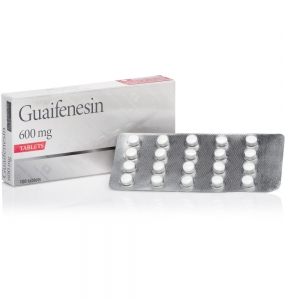


Drug-induced kidney stones, including those caused by guaifenesin, present diagnostic challenges due to their high protein matrix. A study of guaifenesin-associated stones revealed a composition of 60% protein and 40% guaiacol. Proteomic studies identified a subset of proteins enriched in the stone matrix and depleted in urine, indicating their involvement in the stone-forming process. This research highlights the role of specific proteins in crystal formation and offers a novel approach for identifying key contributors to nephrolithiasis.
Kolbach-Mandel, A.M., Mandel, N.S., Cohen, S.R., Kleinman, J.G., Ahmed, F., Mandel, I.C., & Wesson, J.A. (2017) 'Guaifenesin stone matrix proteomics: a protocol for identifying proteins critical to stone formation', Urolithiasis.
Disclaimer: Information provided it this page is for general information only and does not substitute for professional medical advice.
For detailed information about Guaifenesin 600 by Swiss Remedies, consult with your doctor or healthcare professional.


Kolbach-Mandel, A.M., Mandel, N.S., Cohen, S.R., Kleinman, J.G., Ahmed, F., Mandel, I.C., & Wesson, J.A. (2017) 'Guaifenesin stone matrix proteomics: a protocol for identifying proteins critical to stone formation', Urolithiasis.

Kolbach-Mandel, A.M., Mandel, N.S., Cohen, S.R., Kleinman, J.G., Ahmed, F., Mandel, I.C., & Wesson, J.A. (2017) 'Guaifenesin stone matrix proteomics: a protocol for identifying proteins critical to stone formation', Urolithiasis.

Kolbach-Mandel, A.M., Mandel, N.S., Cohen, S.R., Kleinman, J.G., Ahmed, F., Mandel, I.C., & Wesson, J.A. (2017) 'Guaifenesin stone matrix proteomics: a protocol for identifying proteins critical to stone formation', Urolithiasis.